Politics
Xi Jinping asserts dominance with high-profile diplomatic push
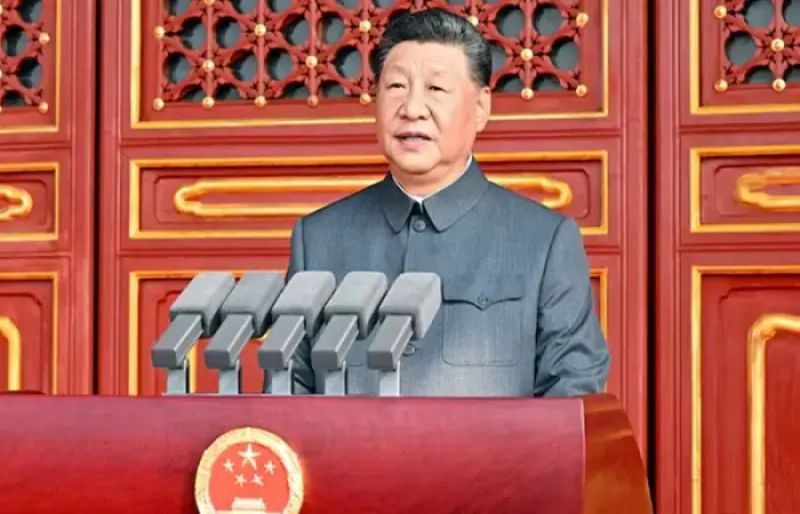
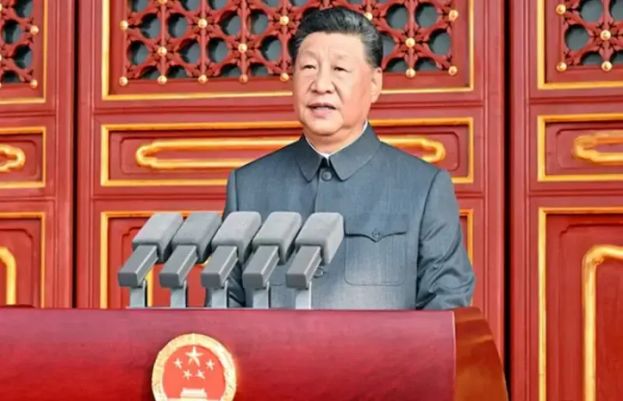
When Chinese President Xi Jinping held his first parade in 2015 to mark the anniversary of World War Two’s end, he placed his two predecessors beside him, symbolising respect and continuity of leadership.
Ten years on and having eliminated domestic opposition as he serves an unprecedented third term as president, Xi was flanked on Wednesday at the 80th anniversary parade by Russia’s Vladimir Putin and North Korea’s Kim Jong Un.
Chinese Communist Party leaders were interspersed among overseas guests.
The parade followed Xi’s high-profile summit with Indian Prime Minister Narendra Modi at a weekend meeting of the Shanghai Cooperation Organisation (SCO) in Tianjin, and the Chinese leader’s rare visit to Tibet last month.
This display of diplomatic clout, stamina and geopolitical ambition has helped quell concerns among some China observers about the 72-year-old president’s vitality, linked to sporadic absences and — so far unknown — succession plans.
It has also helped divert domestic attention from slowing growth, experts say.
Longevity was on the leaders’ minds as they walked up to the rostrum at Beijing’s Tiananmen Square Xi and Putin were caught in a hot mic moment discussing organ transplants and the possibility that humans could live to 150 years old.
“This week of triumphant diplomacy for Xi shows that he remains totally in charge of the elite politics of the Communist Party,” said Neil Thomas of the Asia Society, a New York-based think tank.
Unable to get the same legitimacy from economic growth as his predecessors, Xi has turned toward nationalism “to try and make up for it”, Thomas said.
“It’s a way to divert attention from economic challenges and to make his citizens proud to be Chinese, even if it’s harder to feel that from the day-to-day experiences of unemployment, falling house prices and stagnant wages.”
Xi underscored his elder statesman image with fashion choices: a grey suit in the style of those worn by Mao Zedong, matching his greying hair, in contrast to the black suits of his counterparts and his own black attire from a decade earlier.
His number two, Premier Li Qiang, whose role has diminished at home, was charged with relatively minor meetings with leaders of Malaysia and Uzbekistan.
High-profile engagements with Kim, Modi, Turkish President Tayyip Erdogan and several others fell to Cai Qi, who heads the party’s Central Secretariat, responsible for its sprawling administration.
In response to a Reuters request for comment, China’s foreign ministry referred to news conference transcripts related to the recent diplomatic events, showcasing China’s partnerships with developing nations and positioning Beijing as committed to peaceful development and international cooperation.
Many countries that sent their leaders to China in the past week have been hit by US President Donald Trump’s trade tariffs this year, including India, which remains a significant buyer of Russian oil, hit by sanctions over Putin’s invasion of Ukraine.
In one of the most memorable moments in the flurry of diplomatic encounters, Modi and Putin walked over for a chat with Xi while holding hands, underscoring personal tensions between Trump and Modi, as well as Washington’s failure to draw historically non-aligned India in to counter Russia and China.
“Ultimately, one of the biggest driving factors of the SCO show of solidarity has been US policy,” said Even Pay, a director at strategic advisory firm Trivium China.
Trump, who called the military parade “beautiful” and “very, very impressive”, made a barbed post on social media saying China was working with Putin and Kim to “conspire against The United States of America”.
The Kremlin responded that they were not conspiring and suggested Trump’s remarks were ironic.
Hit by Trump, welcomed by Xi
Analysts say Xi’s whirlwind of activity underscores China’s ambition in presenting itself as a reliable partner to developing nations on the global stage, offering advantages like investment opportunities and even a new development bank a major step forward for the SCO, which has expanded markedly over past decades to also include Pakistan, India and Iran.
“China’s message as a more reliable, stable alternative to the United States is resonating with large swathes of the world, particularly across Asia, which sees the United States as an increasingly belligerent force in world affairs,” said Eric Olander, editor-in-chief of the China-Global South Project, a research agency.
“A lot of developing countries and middle-power states may still be a bit ambivalent about what China’s proposing with its new governance and development initiatives, but at least what China is talking about is forward-looking, which is crucial for economies with large populations of young people looking for better employment opportunities,” Olander said.
Xi faces considerable challenges in managing this large and often fractious coalition as he eyes a potential fourth term of office in 2027 to further cement his legacy as the most powerful Chinese leader since Mao.
Entrenched Chinese foreign policy positions, including territorial disputes and industrial subsidies that have flooded foreign markets with cheap exports, will likely remain friction points, experts say, while India’s deep distrust of China will not dissipate because of one brief meeting.
“It’s not necessarily a big-picture shift towards a more China-led international order,” said the Asia Society’s Thomas.
Politics
Thailand, Cambodia agree to ‘immediate’ ceasefire: joint statement
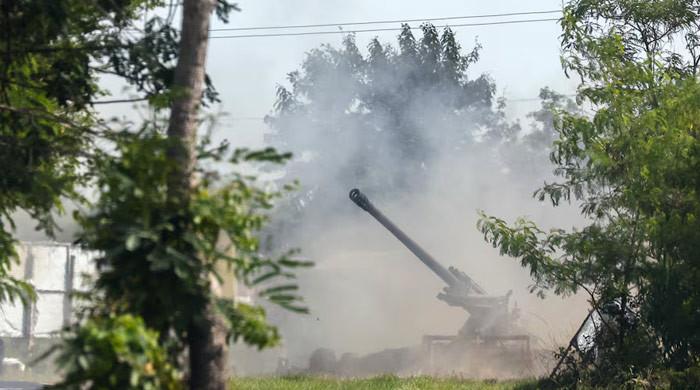
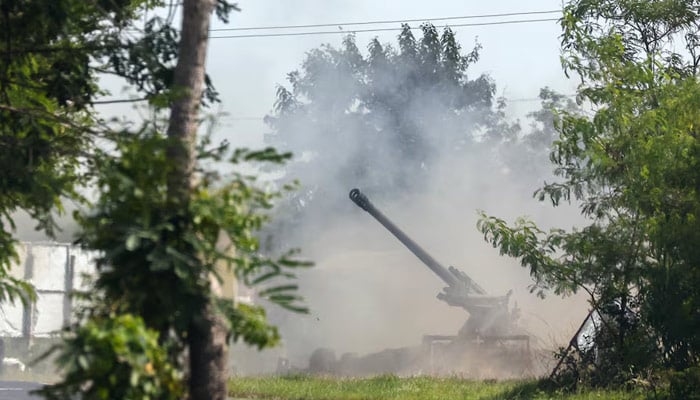
- Ceasefire deal follows days of talks between Thailand, Cambodia.
- Nearly one million displaced by Thailand-Cambodia border clashes.
- Both sides agree to cooperate on demining efforts, combating cybercrime.
Thailand and Cambodia agreed to an “immediate” ceasefire on Saturday, the two countries said in a joint statement issued by the Cambodian side, pledging to end weeks of deadly border clashes.
The neighbours’ long-standing border conflict reignited this month, shattering an earlier truce and killing at least 47 people, according to official counts. Around a million people have also been displaced.
“Both sides agree to an immediate ceasefire after the time of signature of this Joint Statement with effect from 12:00 hours noon (local time) on 27 December 2025, involving all types of weapons, including attacks on civilians, civilian objects and infrastructures, and military objectives of either side, in all cases and all areas,” said the statement signed by the two countries´ defence ministers.
Both sides agree to freeze all troop movements and allow civilians living in border areas to return home as soon as possible, the statement said.
They also agree to cooperate on demining efforts and combating cybercrime.
The ceasefire will go into effect at 12:00pm (0500 GMT) to end the battling over a smattering of ancient temples in disputed zones along the two countries´ shared frontier.
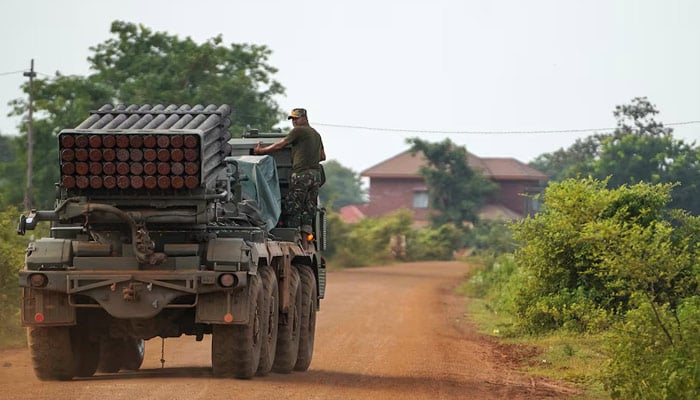
It comes after three days of border talks announced following a crisis meeting of foreign ministers from the Association of Southeast Asian Nations (ASEAN), of which both Cambodia and Thailand are members.
The United States, China and Malaysia also pushed for the warring neighbours to resume their ceasefire.
The three countries brokered a truce to end five days of deadly clashes in July, but the ceasefire was short-lived.
Politics
Heavy rains, flash floods leave Southern California homes caked in mud
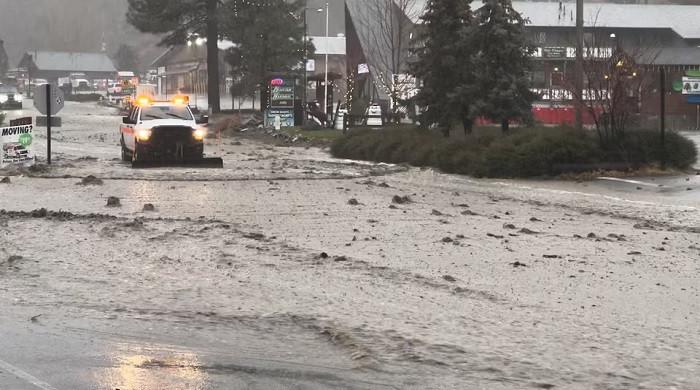
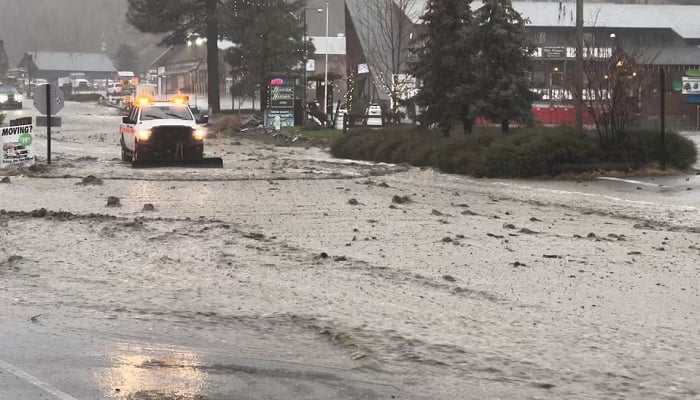
- Several dozen homes in town of Wrightwood left mud-damaged.
- Atmospheric river subsides after three days of torrential rain.
- Flood watch remains in effect for much of Los Angeles area.
Three days of heavy downpours that spawned flash flooding and mudslides across Southern California subsided on Friday, as residents of homes in the hard-hit mountain resort of Wrightwood began digging out mud and assessing damage.
The holiday storm drenched the greater Los Angeles basin with up to 6 inches of rain by Friday, with 12 inches or more measured in lower-elevation mountains east of the city, according to the National Weather Service.
The deluge, which began around Christmas Eve, was spawned by the region’s latest atmospheric river storm, a vast airborne stream of dense moisture siphoned from the Pacific and carried inland.
The torrential rains were accompanied by strong, gusty winds that toppled trees and power lines across the region, causing power outages. Heavy snow fell in the upper mountain areas.
Even before the storm hit, authorities were issuing evacuation warnings to neighbourhoods considered vulnerable to flash floods and debris flows, especially near hillsides previously ravaged by wildfires. Motorists were urged to avoid travel whenever possible.
Although rainfall was tapering off on Friday, a flood watch remained in effect for much of Southern California.
Homes swallowed in mud
In Wrightwood, a town of about 5,000 residents that bore the brunt of the storm in the San Gabriel Mountains northeast of Los Angeles, county safety inspectors began initial assessments of property losses.
Several dozen homes were heavily damaged by rivers of mud that poured through the town on Wednesday, and officials were on standby for additional debris flows that might occur, San Bernardino County Fire Department spokesman Ryan Beckers said.
“Evacuation warnings for Wrightwood are still in effect, and all the roads in the area are closed, except to residents,” he said.
Misty Cheng, 49, an accountant who owns a vacation home in Wrightwood, said she learned the property was being swallowed by a mudslide from a neighbour who sent her video footage.
“My house is buried in over 5 feet of mud,” said Cheng, speaking to Reuters by cellphone from her primary residence in nearby Upland, where she was staying when the slide occurred.
A stream of mud had forced its way into the house through a crushed wall of the attached garage, filling the living room. By the time she ventured back to the property herself to see the damage first-hand and salvage some belongings, the mud had hardened into a mound solid enough for her to stand on.
“I was able to get a truckload of personal items” out of the house, mostly from the second floor, which was left untouched, she said. Without flood insurance, Cheng said she started a GoFundMe page to raise money for repairs.
Aerial video footage posted online by the fire department showed clusters of homes and vehicles in the town caked in walls of mud as crews in front-loaders began clearing clogged roadways.
Beckers said emergency teams rescued a couple of dozen people who were trapped by high water and debris flows in their vehicles or homes over the holidays, but no deaths or serious injuries were reported in Wrightwood.
The Weather Service said Southern California was expected to dry out over the weekend, while across the country, a major winter storm threatened to begin dumping record levels of snow over parts of New York state starting on Friday night.
Politics
UAE targets online predators and data misuse with child digital safety law
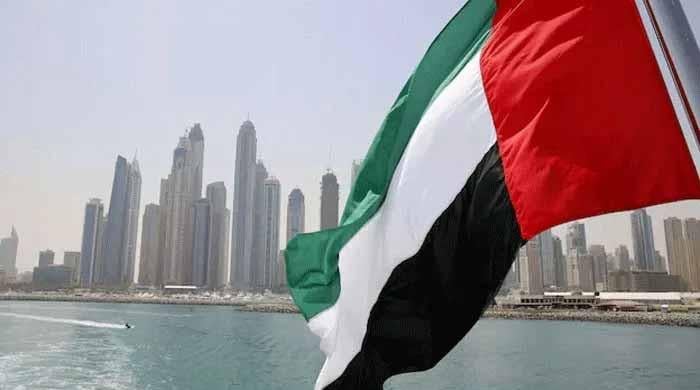
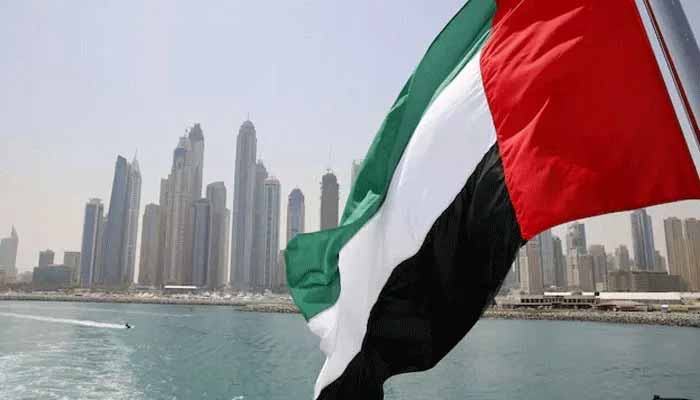
DUBAI: The United Arab Emirates (UAE) has introduced a new federal law aimed at protecting children from online predators, data misuse and harmful digital practices, signalling a tougher global approach to child safety in the digital age.
The legislation seeks to prevent strangers from anywhere in the world from accessing, tracking or interacting with children online, particularly through the collection and use of personal data such as a child’s interests, online behaviour and abilities.
Under the decree-law, digital platforms are prohibited from collecting, processing or sharing the personal data of children under the age of 13, except in limited cases such as educational or health-related services. Children are also barred from creating accounts or accessing online games and digital activities that involve gambling or betting with money.
The law applies to digital platforms and internet service providers operating in the UAE or targeting users in the country, including social media, messaging apps, online gaming platforms, streaming services, search engines and e-commerce websites.
It requires platforms to introduce default privacy settings, age-verification systems, content filtering and age-rating tools, while internet service providers must activate content controls and ensure parental consent for children’s internet use.
A Child Digital Safety Council, chaired by the Minister of Family, has been established to coordinate policy, legislation and awareness campaigns on emerging digital risks.
The decree forms part of the UAE’s broader social policy agenda, following the country’s declaration of 2026 as the Year of the Family, reflecting a wider push to strengthen family and child protection frameworks in an increasingly digital world.
-

 Fashion1 week ago
Fashion1 week agoIndonesia’s thrift surge fuels waste and textile industry woes
-

 Sports1 week ago
Sports1 week agoPKF summons meeting after Pakistani player represents India in kabaddi tournament
-
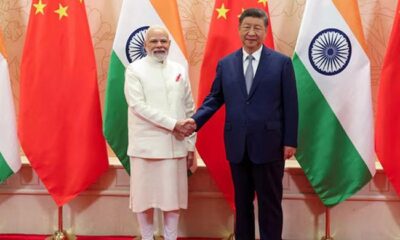
 Entertainment1 week ago
Entertainment1 week agoIndia streamlines visa rules in boost for Chinese professionals
-

 Sports1 week ago
Sports1 week agoUWCL grades for all 18 teams: Leuven get A+; Barça an A-, PSG fail
-
Sports7 days ago
Alabama turned Oklahoma’s College Football Playoff dream into a nightmare
-
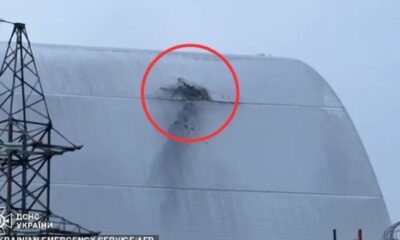
 Entertainment1 week ago
Entertainment1 week agoRadiation fears rise after cracks found in $2 billion Chernobyl shield
-

 Business7 days ago
Business7 days agoGold prices in Pakistan Today – December 20, 2025 | The Express Tribune
-

 Entertainment7 days ago
Entertainment7 days agoRare look inside the secret LEGO Museum reveals the system behind a toy giant’s remarkable longevity






